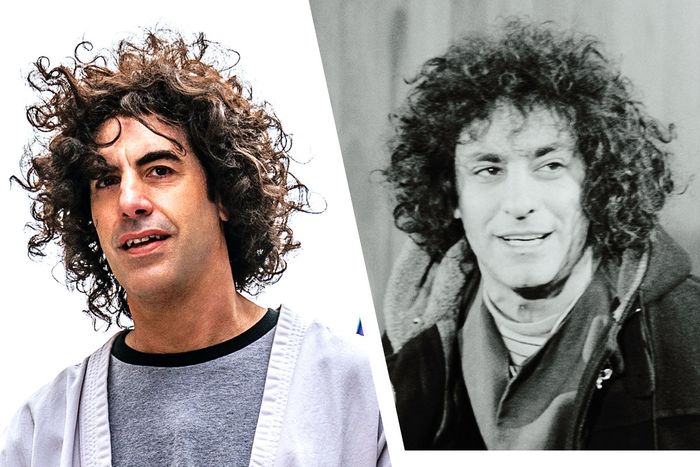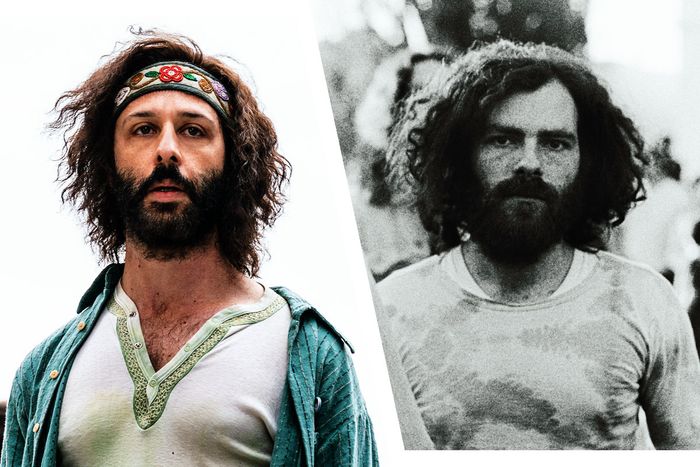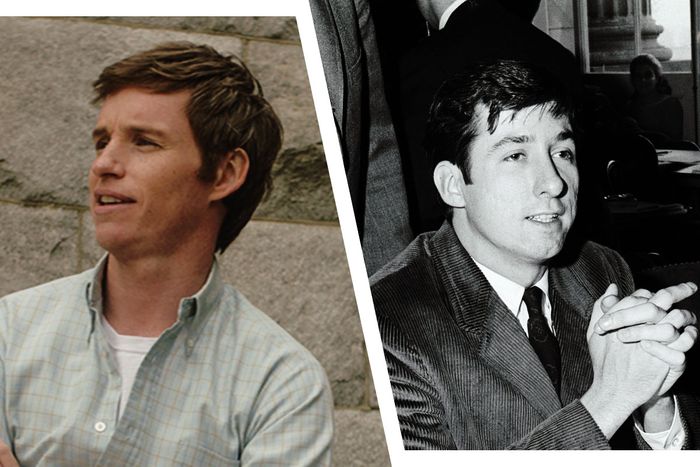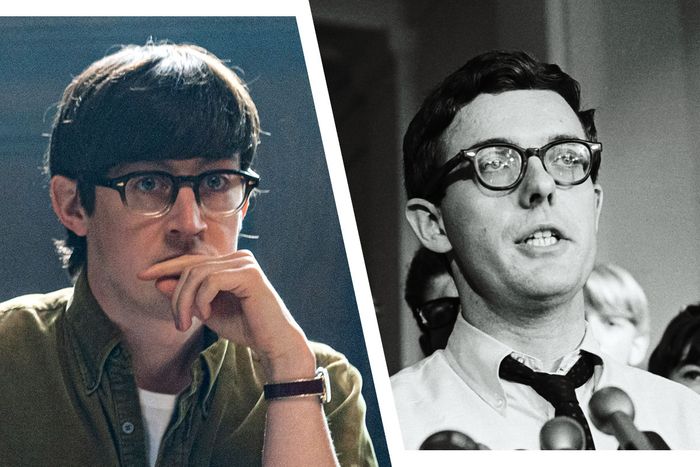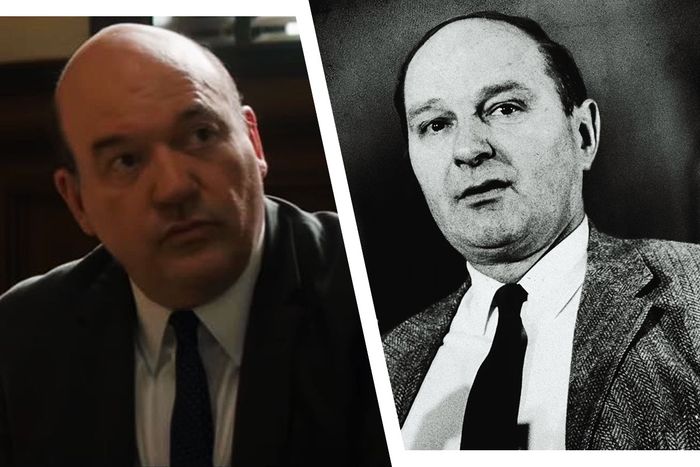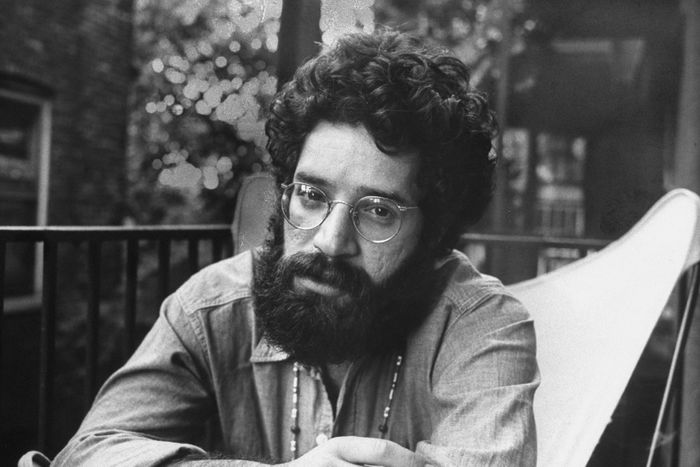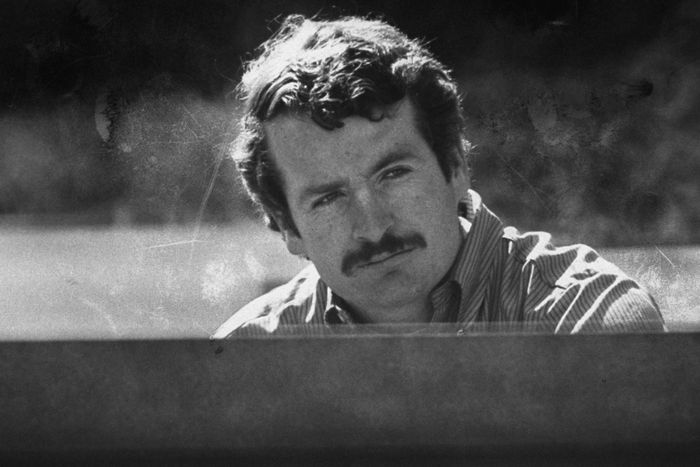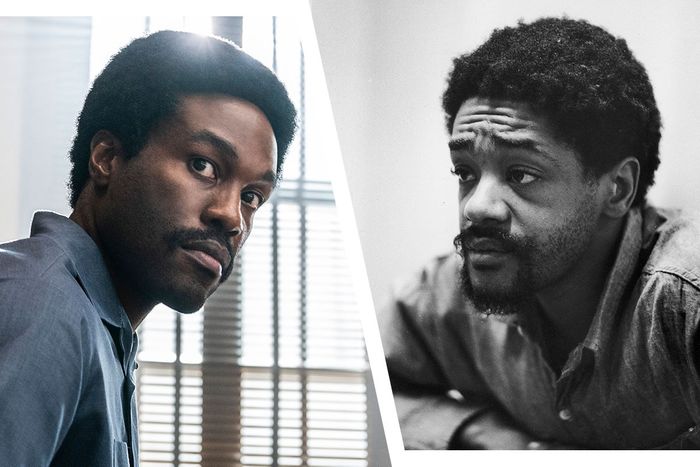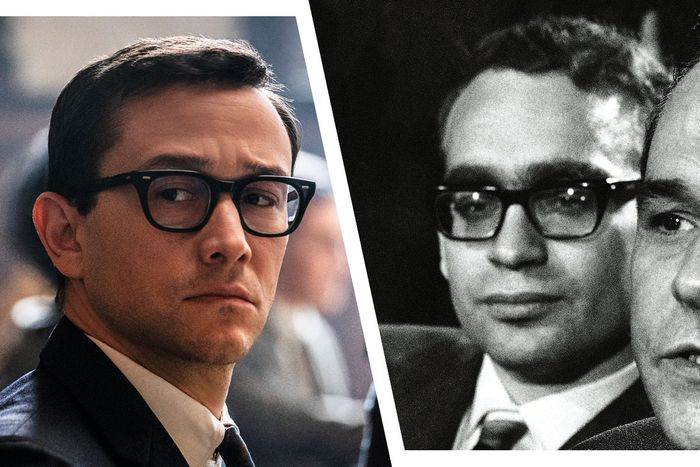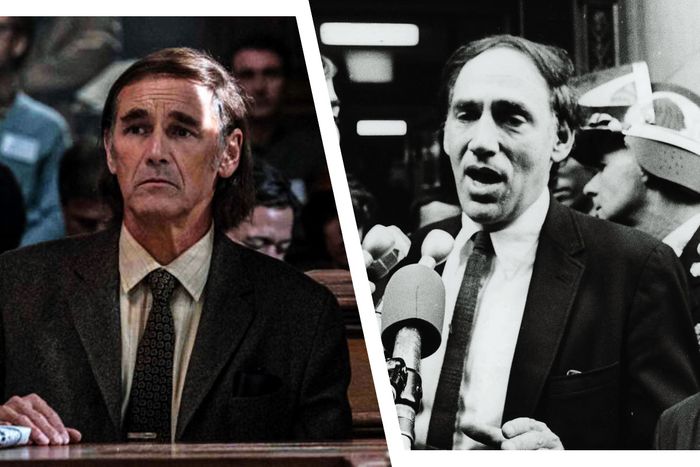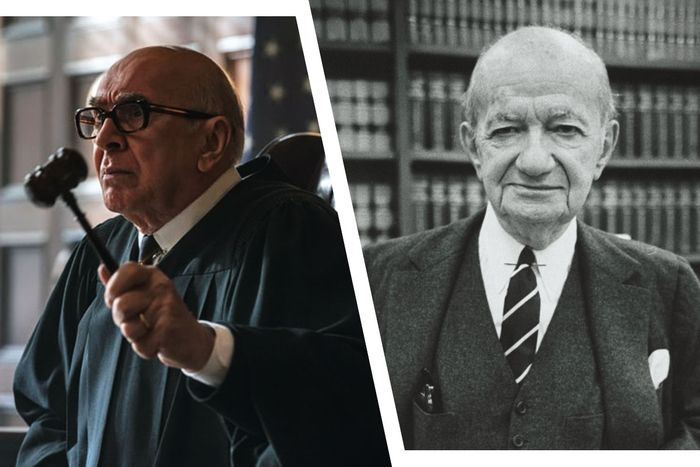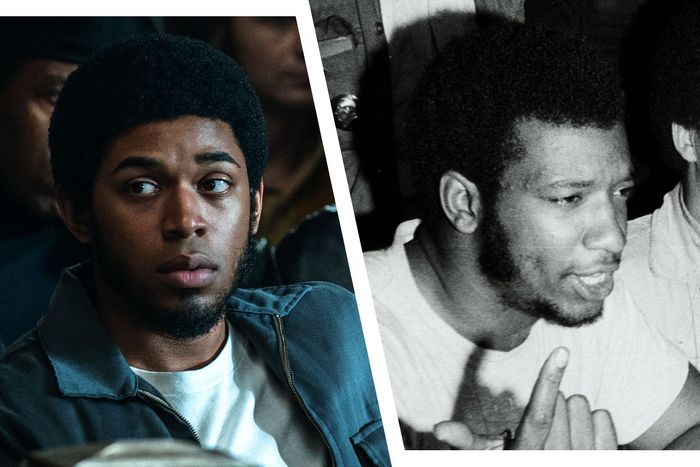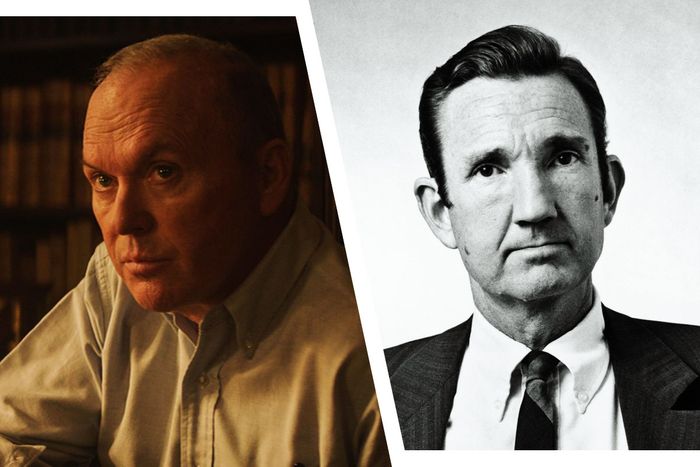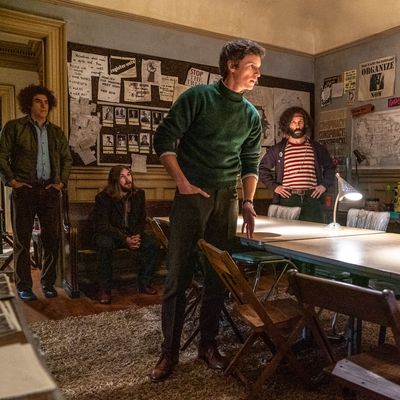
The whole world was watching when a group of Vietnam War protesters was put on trial by the U.S. government, accused of crossing state lines to incite a riot during the 1968 Democratic National Convention in Chicago. It didn’t matter that the police were documented committing violent acts during what began as peaceful protests; this group was to be made an example. The trial that ensued became a famous circus of the American court system, in which hippies, yippies, and more squared off against the immense biases of a judge who wanted them to lose, all the while racking up numerous contempt charges for a wide range of disruptive behaviors. Whether it was the spectacle created by media-savvy jokester Abbie Hoffman or the firm outrage expressed by pacifist David Dellinger, each reactionary played a particular part in this all-American farce, which has recently been made into a courtroom epic by writer-director Aaron Sorkin.
In an introduction to The Trial of the Chicago 7: The Official Transcript, Sorkin says that his screenplay is “very different” from the words of the trial, which is an accurate summation of his approach to a story that took place from September 1969 to February 1970. For all of the poetry inherent in the revolutionaries’ battle with a system that seeks to silence them, Sorkin manages to add his own flourishes, including a rousing ending that’s far more symbolic than accurate. To help keep track of all these different players, here’s a guide to the major figures in Sorkin’s film:
Abbie Hoffman
Of the many rabble-rousers in the trial, none was more famous than Abbie Hoffman (played by Sacha Baron Cohen), who brought theatricality and personality to the proceedings given his knowledge of media and psychology. Hailing from Boston, Hoffman worked as a psychologist before becoming involved with the revolution of the ’60s, when he and other members of the Youth International Party (known as the Yippies) protested the Vietnam War and capitalism, sometimes using more outrageous, attention-grabbing stunts like trying to levitate the Pentagon or raining money down onto the New York Stock Exchange floor. Hoffman spoke at colleges and made public appearances throughout the trial (as shown in Sorkin’s film). After the trial (which he famously referred to as taking place inside a “neon oven”), Hoffman continued his activism and wrote the famous political text Steal This Book. Later, to avoid a cocaine charge in the early ’70s, he underwent cosmetic surgery and changed his name to Barry Freed. (He would eventually surrender and serve the charge in 1980 before getting an early release.)
Jerry Rubin
Before the trial, Rubin (played by Jeremy Strong) had a long history of activism that included joining the Free Speech Movement in Berkeley, California, where he ran for mayor. He was the founder of one of the era’s earliest protest groups, the Vietnam Day Committee. Rubin achieved notoriety by being subpoenaed by the House Un-American Activities Committee, before which he appeared dressed as an American Revolutionary soldier; in another HUAC hearing, Rubin showed up dressed as Santa Claus. With Yippie co-founder Hoffman, they planned a “Festival of Life” to juxtapose the Democratic National Convention, which included outdoor concerts, guerrilla theater, and a “nude-in” on a Chicago beach. During the trial, Rubin famously stomped around Judge Julius Hoffman’s court, giving a Nazi salute and shouting “Heil Hitler!” Rubin left activism in the ’70s and worked on Wall Street; he and Hoffman did a campus tour in the 1980s that was dubbed the “Yippie Versus Yuppie” debates.
Tom Hayden
As co-founder of the Students for a Democratic Society (SDS), Hayden (played by Eddie Redmayne) wrote the Port Huron Statement in 1962, a manifesto to guide the protests and their values. During the southern civil-rights campaign, he was arrested in Mississippi. From the onset of the protest planning, Hayden and Rennie Davis wanted to make the demonstrations peaceful, laying out their goals in a document that Judge Hoffman barred from being submitted in court. During the trial, Hayden was a self-proclaimed “strategist” and later shared that he “spent every night ’til three, four in the morning going over testimony, transcripts, preparing witnesses.” After the Chicago trial, he married and later divorced activist and actress Jane Fonda. Before entering politics in the 1970s and later serving in the California Senate, Hayden co-founded the Campaign for Economic Democracy, which lobbied for environmental protection and solar power.
Rennie Davis
One of two defendants to testify during the trial (the other being Hoffman), Rennie Davis (played by Alex Sharp) was considered the “negotiator” by frequent SDS partner Hayden, liaising between the city and the protesters, trying (and failing) to get the permits to protest. Davis came from wealth in Virginia, his father having worked as chairman of President Truman’s Council of Economic Advisers. At the end of the trial, Davis told Judge Hoffman he was “all that is old, ugly, and bigoted in this country, and I tell you that the spirit you see at this defense table will devour you.” After the trial, Davis traveled to North Vietnam to escort prisoners of war, whose release had been negotiated by none other than Dellinger. Davis later became a venture capitalist and follower of Guru Maharaj Ji and founded the Foundation for a New Humanity.
David Dellinger
The oldest member of the Chicago Seven (played by John Carroll Lynch) was the 54-year-old chairman of the Mobe (the National Mobilization Committee to End the War in Vietnam), a well-known pacifist who was ironically considered by the prosecutors to be the “chief architect of the conspiracy.” Educated at Oxford and Yale, Dellinger had been previously jailed for three years for not registering for military service in World War II and protested the Bay of Pigs and Korean War. On the night Hubert Humphrey won the Democratic presidential nomination, Dellinger was a leader of a peaceful protest that did not have permits and became violent at the hands of police. Dellinger was also known for going to Paris to negotiate the release of American war prisoners and went to North Vietnam to guide them back to the United States.
Lee Weiner
Lee Weiner (played by Noah Robbins) only had loose connections to the other people in the group, though he and John Froines were accused of using and teaching people to make Molotov cocktails and other incendiary devices. Like Froines, Weiner served as a marshal at the Chicago demonstrations with the Mobe. According to Hayden, the Northwestern University grad student spent much of his time in court quietly reading I Ching. After the trial, Weiner worked for the Anti-Defamation League and raised funding for AIDS research.
John Froines
John Froines (played by Danny Flaherty) demonstrated the same general sense of detachment from the protests as Weiner, though he himself became an activist in 1964; he founded the Radical Science Information Service and later became a member of the SDS. A chemist with a Ph.D. specializing in toxicology from Yale, after the trial he served under the Carter administration as OSHA’s director of toxic substances and taught at UCLA from 1981 to 2011.
Bobby Seale
Perhaps the most arbitrary person charged among the Chicago defendants (known as the Chicago Eight until Seale had his trial severed) was Black Panther Party co-founder Bobby Seale (played by Yahya Abdul-Mateen II), who had only met Rubin before the indictment and was only in Chicago during the time of the protests to give two speeches in place of Panther leader Eldridge Cleaver, who couldn’t make it. Seale later denounced violence and ran for mayor of Oakland in 1973, losing in the runoff. He also taught political science at Temple University in Philadelphia.
Richard Schultz
As the younger assistant to chief prosecutor Thomas Foran, Richard Schultz (played by Joseph Gordon-Levitt) was known to be the more aggressive of the duo. Sorkin writes the character as having a clear reluctance in taking on the case, but real accounts indicate a kind of enthusiasm in his attacks of the defense. J. Anthony Lukas, who wrote extensively about the trial, said that “Schultz could have made the first robin of spring sound like a plot by the Audubon Society.”
Thomas Foran
The chief prosecutor (played by J.C. MacKenzie) was originally brought on by the Johnson administration as the U.S. Attorney for northern Illinois, intending to leave after Nixon’s election. Days after his work on the trial, Foran infamously used anti-gay slurs in public to describe the defendants (except Seale). When the convictions were reversed against the five charged defendants, Foran was criticized for making a “considerable number” of derogatory statements during the trial.
William Kunstler
The lead attorney for the defendants, William Kunstler (Mark Rylance) helped guide the charge, emphasizing that the trial spectacle was more about politics and less about criminal behavior. He came to the proceedings with previous experience representing civil-rights leaders such as Martin Luther King Jr., Stokely Carmichael, H. Rap Brown, and Malcolm X. Kunstler later headed the ACLU and was a co-founder for the Center for Constitutional Rights.
Leonard Weinglass
Considered the workhorse of the defense, Leonard Weinglass (played by Ben Shenkman) was the less theatrical assistant to Kunstler. After the trial, he represented the likes of Pentagon Papers defendants Daniel Ellsberg and Anthony Russo and later represented Angela Davis and Jane Fonda.
Judge Julius Hoffman
By the end of the trial, Judge Julius Hoffman (played by Frank Langella) gave over 150 convictions of contempt during the course of proceedings, a part of his polarizing legacy as a figure of law. When his convictions were reversed, Judge Thomas Fairchild wrote that “the district judge’s deprecatory and often antagonistic attitude toward the defense is evident in the record from the very beginning.” In 1982, Hoffman reflected on the trial by saying, “I did nothing in that trial I am not proud of. I presided with dignity. When I felt I had to be firm, I was firm.”
The Informants
Sorkin takes some artistic liberty when it comes to the undercover cops in the story, whom he condenses into three fictional characters named Sergeant Scott Scibelli, Daphne O’Connor, and Frank DeLuca. Together, they’re a hodgepodge representation of real officers like Robert Pierson, who offered to be a bodyguard for Rubin and Hoffman, and Mary Ellen Dahl, who says she witnessed Hoffman say “We’re gonna storm the Hilton.”
Fred Hampton
Contrary to Sorkin’s version of Fred Hampton’s involvement in the Trial of the Chicago 7 narrative, the Black Panther leader (played by Kelvin Harrison Jr.) was not sitting behind Seale during the proceedings, nor was he whispering secret things to him; he wasn’t even in the courtroom. Hampton was in the city of Chicago, however, having joined the Black Panthers in November 1968. Until his murder by the FBI and Chicago police in December 1969, Hampton did historic work for the Black Panther Party that included building a multicultural movement called the Rainbow Coalition, which sought to end gang violence.
Ramsey Clark
The former attorney general (played by Michael Keaton) has a brief but significant appearance in Sorkin’s saga. In real life, he would have been an excellent witness for the defendants had Judge Hoffman allowed Clark to be heard in court; he was the man who originally refused to prosecute the case, before being replaced by Attorney General John Mitchell, having been more interested in prosecuting the police brutality than the acts of the protesters. Throughout his career, Clark supervised the Civil Rights Act of 1968 and the court order that protected the Selma marches. He was also a strong opponent to America’s occupation of the Middle East and advocated for the impeachment of George W. Bush. Clark received the Gandhi Peace Award in 1992.
John Mitchell
As the new attorney general under the Nixon administration, John Mitchell (played by John Doman) did not share Clark’s reluctance in prosecuting the demonstrators in 1969 and is shown in the film taking Clark’s slow-acting resignation from the position extremely personally. Mitchell later became known for being a central figure in Nixon’s Watergate scandal and was found guilty of conspiracy, obstruction of justice, and perjury.
David Stahl
A type of liaison to the protest organizers, David Stahl (played by Steve Routman) was the one who spoke to organizers and tried to secure permits for the demonstrations parallel to the convention. “We had meetings at 4 a.m. in strange and wonderful places,” Stahl recalled to the Baltimore Sun about negotiating with Hoffman and others in the summer of ’68. Though Stahl would testify against the group, he agreed with them on the issue of Vietnam. “Where we disagreed was [that] I believe in government and they were fundamentally anarchist,” he said.
Bernardine Dohrn
The American revolutionary only has somewhat of a cameo appearance in Sorkin’s film, shown as a woman answering the phones at the SDS headquarters, where the defendants commiserate. Dohrn (played by Alice Kremelberg) was elected to be one of three leaders at the SDS until she became a pivotal member of the radical-left extremist group the Weather Underground. Though she was never arrested or prosecuted, for years her alleged advocacy for terrorism against police put her on the FBI’s top-ten list of “Most Wanted” fugitives. Dohrn is just one of many American revolutionaries who factor into this saga, many of them worthy of their own film.
A previous version of this piece misidentified Bobby Seale. It has been corrected.


